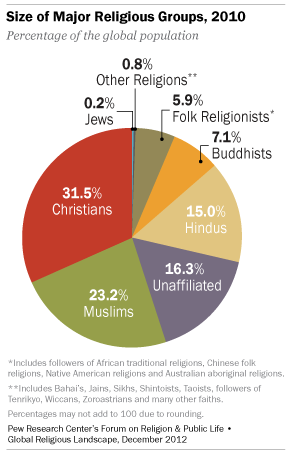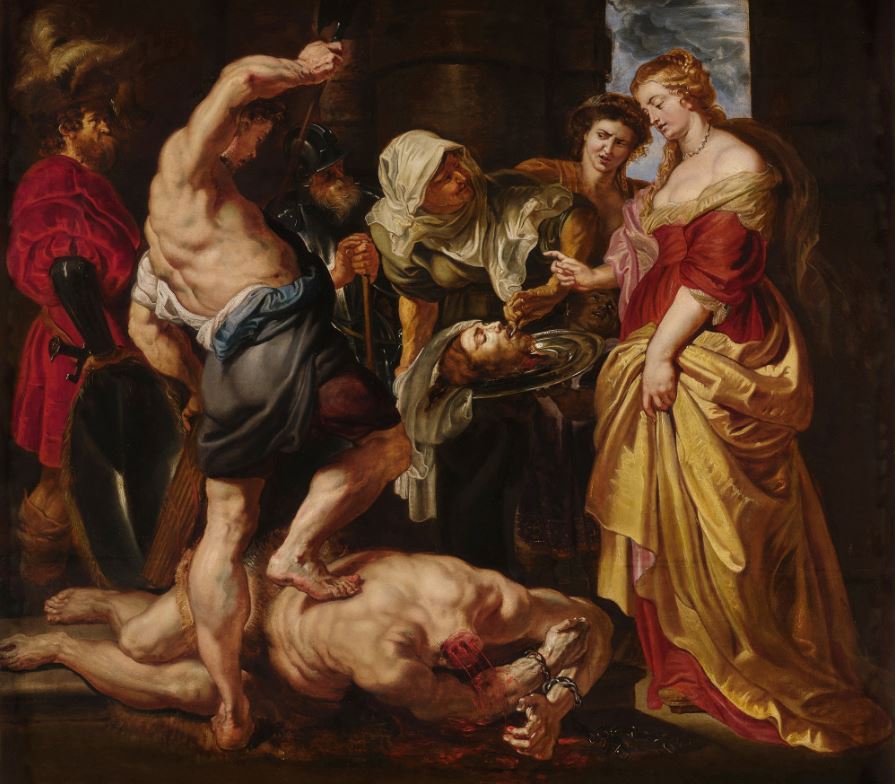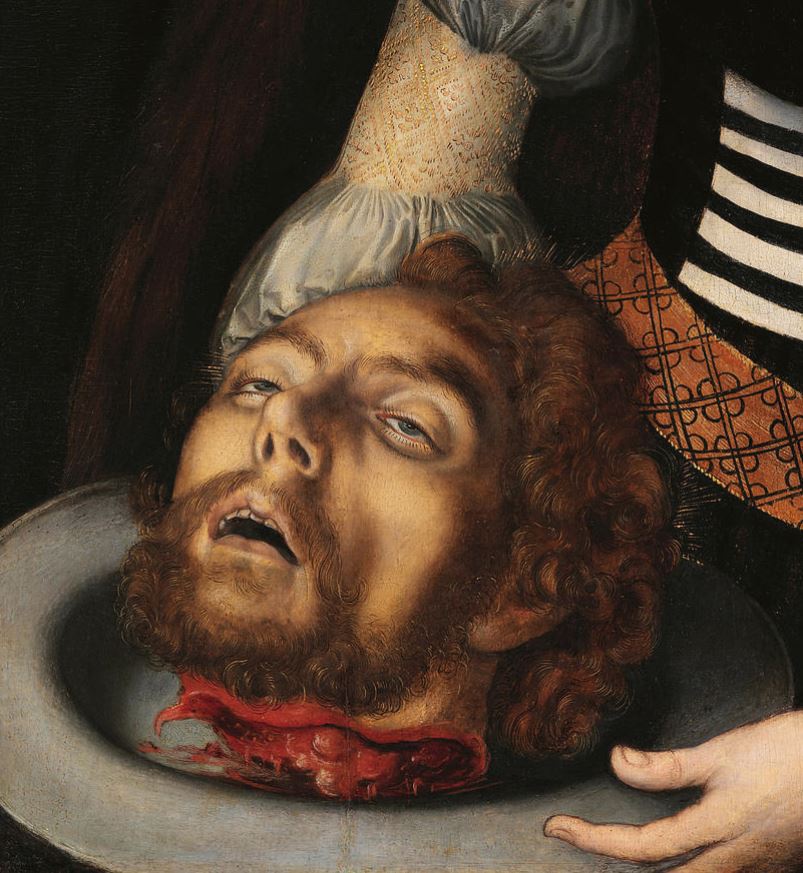Some lines that you read or hear get stuck in memory without any good reason. From teenage years of reading Sidney Sheldon books, the phrase “Hell hath no fury like a woman scorned” has been etched into my memory. The idiom is sometimes attributed to Shakespeare but upon further digging I found out that this is a line from a seventeenth-century play called “The Mourning Bride” by William Congreve. The preceding line makes it complete:
Heaven has no rage like love to hatred turned,
nor hell a fury like a woman scorned.”
Recently I stumbled upon two incidents in religious history that reminded me of this phrase which I would like to share with you.
Ever since humans have inhabited this planet, for who knows how long, up until about two thousand years ago, most people in the world believed in many gods such as the Greco-Roman or Hindu polytheism. However today, according to the Pew Research Center, about half of the world’s population believes in one God. About 2.2 billion Christians and 1.6 billion Muslims believe in the one God of Abraham.

In the days of polytheism, it was common for humans to be considered as gods or demigods such as the Egyptian pharaohs or the Roman Emperors. In today’s world, only one human by the name of Jesus of Nazareth is considered God by billions of Christians around the world. Muhammad ﷺ on the other hand, is not considered to be God by Muslims but carries the highest level of veneration any human can possibly have. This is to the extent that even a slight mockery in any way will lead to violent protests around the world.
Recently I read the biographies of both Jesus and Muhammad ﷺ. Their stories are very well known to Christians and Muslims respectively but I was able to curate two stories from their lives that represent atrocious acts of revenge and hatred, unified in their significance by virtue of the fact that they were committed by women. If you are a Christian reading this essay, you are likely to know the story of Herodias but not that of Hind. If you are a Muslim, vice versa.
HERODIAS ANTIPAS
When is this story from?
Circa 29 CE
Who was she?
Herodias was the wife of King Herod Antipas – the ruler of Galilee in the early first century, during the life of Jesus.
Characters in this story:
–John the Baptist: (Also known as Prophet Yahya by the Muslims) is a central figure in Christian history. He was a famous and influential Jewish preacher in the first century who lived in the area of and baptized people in the Jordan River. He had anticipated the arrival of the Messiah – the Savior of the Jewish people.
-Herod Antipas: Ruler of Galilee in the times of Jesus Christ. He was the son of King Herod The Great who had originally ordered the killing of all newborn boys in Bethlehem when the Magi priests predicted that the Messiah of the Jews would be born there.
-Salom: Herodias’ teenage daughter from her previous marriage; Herod’s stepdaughter.
What was Herodias’ beef with John the Baptist:
John the Baptist publicly and vociferously condemned King Herod Antipas because he divorced his own wife and married his brother’s wife Heordias. This was considered a blatantly sinful act by the Jewish people. Herod had John captured and thrown into prison at the mountaintop fortress at Machaerus. However, he decided not to have him killed, for fear of public retaliation. Herodias tried to persuade Herod to kill John but he did not think it was a good idea.
What happened?

One day, King Herod Antipas invited the nobles of town to his fortress in order to celebrate his birthday. After dinner, he surprised his guests by asking Salom to present a dance. She performed so beautifully that everybody in attendance was in awe. King Herod, holding his head high with pride, proclaimed, “Ask me for anything you want and I will give it to you!”
Salom was young and naïve and like most young girls, goes straight to her mother and puts the decision in her hands, “What should I ask for?” At this time, Herodias could have asked for anything, knowing that King Herod had given his word in front of all the nobles of the city and would not be able to let her down.
She decided to quench the thirst of revenge and sent Salom back to King Herod. “I want the head of John the Baptist.” Everybody in attendance gasped with horror. The King was reluctant to kill John for political and religious reasons but had no choice but to fulfill his promise and ordered his men to behead John. John was forced to his knees and an executioner severed his head with his sword and presented it to Herodias and Salom on a silver platter. Thus, one of the noblest men in Jewish and Christian history fell prey to the scorn and fury of a slighted woman.
HIND BINT UTBA
When is this story from?
Circa 625 CE
Who was she?
Hind was a woman of importance in the Quraysh tribe to which Muhammad ﷺ belonged. She was the wife of Muhammad’s uncle Abu Sufyan who held a high position and was the leader of the Meccans that fought against early Muslims. She was also the mother of Muawiya who was initially given the coveted post of Governor of Syria and after Ali’s death, became the ruler of the Muslim Ummayad rule. She was also the grandmother of Yazid who was the central figure in the tragedy of martyrdom of Muhammad’s grandson Hussain.
Characters in this story:
-Hamza: He was Muhammad’s uncle and a ferocious warrior. Nobody dared come close to him on the battleground because of his masterful combat skills.
-Wahshi Ibn Harb: He was an Ethiopian slave who initially fought against but eventually embraced Islam.
What was Hind’s beef with Hamza?
Hind was seething in the fire of revenge because Hamza had killed her father and brother in the Battle of Badr.
What happened?

At the Battle of Uhd, Hind commissioned Wahshi to find Hamza at the battleground and kill him. “Come on, black man! Satisfy your vengeance and ours!” For Wahshi, it was not easy to get close to Hamza because this would be like an act of suicide but he was promised to be freed if he accomplished this task. Freedom’s worth was more to him than his life so he summoned courage and found Hamza on the battleground. He threw his spear at him that went through the abdomen of an unsuspecting Hamza, exiting between his legs and he fell to the ground. Wahshi knew that he got Hamza and returned to Hind to inform her of the good news. Hind was still not satisfied and wanted to see it with her own eyes.
She went to the battleground after the battle was over. Walking over freshly killed and mutilated bodies, she went around trying to find Hamza’s body. She uttered a shrieking chant when she found the body:
“You, O Wahshi, have assuaged the burning in my breast.
I shall thank Wahshi as long as I live
until my bones rot in the grave.”
She, along with some other women, disfigured the corpses and made necklaces and beads out of cut-off noses and ears. She dug her dagger into Hamza’s body and gouged out the liver and chewed on it, blood dripping over her mouth and chin onto her neck and chest.
Although later after Mecca was conquered by Muhammad ﷺ, she accepted Islam and had a useful role in the Battle of Yarmouk, her son Muawiya was called the “Son of the Liver Eater” behind his back even when he was the most important man in the Muslim world, as the ruler of the Muslim dynasty in the seventh century.
Just saying:
Out of all the things that God has made for man in this world, the most beautiful indeed, is a woman. Nothing gives more happiness and joy to a man than a woman, be it in the form of a mother, a sister, a daughter, a wife, or a lover. But make no mistake. Be careful so as not to spite a woman, because:
Hell hath no fury like a woman scorned.
(This essay was written on the seventh day of the month of June, two thousand and twenty-three years since the time when Jesus was a child and in three decades would make his final journey from Capernaum to Jerusalem. This is also written on the eighteenth day of the month of Dhul Qidah, one thousand four hundred and forty-four years from the days when Muhammad ﷺ made his journey from Mecca to Medina.)
Please browse through and read some other articles by clicking here.


You nailed it! I can’t imagine if it could be written any better than this !!!selection of words ,authenticity of research and style of writing!!
Amazing
Nicely put together.
Excellent article. Great work
Bravo!
Good read
This is so well written. The amount of research and reading that goes into writing an article like this is incredible. You are a great writer. You have a vast array of topics that you write very beautifully about. Thank you for sharing this
Nothing a little cough syrup won’t cure, if you know what I mean.
Lovely piece. You have gone into more serious writing with more facts researched into and putting it into your own thoughts. Thats a step up from the past writings which mostly offered your thoughts only, more of an insider into your thoughts. I guess for writers, thats a step up. Happy writing brother.
Absolutely amazing … the writer portrayed the worlds most perfect fact . N obviously this Hindah story which we use to learn in school times perfectly gotten into the meaning of fury.. More refined blog mashallah ..God bless u doc